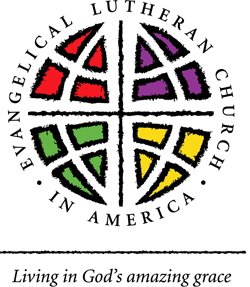By Everett J. Thomas
 Leaders from Evangelical Lutheran Church of America (ELCA) and Mennonite Church USA held a day-long conversation Feb. 21 in Elkhart, Ind. The meetings—designed to help both groups with “right remembering” of the Protestant Reformation—included a capacity lunch-time crowd during a forum at Associated Mennonite Biblical Seminary. The event also made it clear that both groups have challenges ahead if the ecumenical effort is to be extended into congregational life.
Leaders from Evangelical Lutheran Church of America (ELCA) and Mennonite Church USA held a day-long conversation Feb. 21 in Elkhart, Ind. The meetings—designed to help both groups with “right remembering” of the Protestant Reformation—included a capacity lunch-time crowd during a forum at Associated Mennonite Biblical Seminary. The event also made it clear that both groups have challenges ahead if the ecumenical effort is to be extended into congregational life.
In the fall of 2006, ELCA passed a declaration on the condemnation of Anabaptists. In it, Lutheran leaders said, “We express our deep and abiding sorrow and regret for the persecution and suffering visited upon Anabaptists during the religious disputes of the past.”
In response, Mennonite Church USA executive director Jim Schrag wrote a letter in April 2007 conveying appreciation for the declaration. Schrag said, “We are especially moved by the expression of ‘deep and abiding sorrow and regret’ for past persecutions of Anabaptists.” He called for a blessing on “future collaboration between our two churches.”
The “future collaboration” at the Feb. 21 meeting included a report from John D. Roth about the challenges ahead for Mennonites in this dialogue. Roth, a Goshen (Ind.) College history professor, and Paul Schreck, executive assistant to the ELCA Secretary, were featured at the event, entitled “Unbinding Each Other: New Possibilities in Mennonite-Lutheran Relations.”
Roth said that there are several challenges for Mennonites as they receive the Lutheran statement, including the attitude that “We were the true Christians being persecuted, and now 500 years later we are being vindicated.” He also said that Mennonites have taken on a martyr pathology. “When someone says, ‘I’m sorry,’ can we give it up?” he asked.
Roth also pointed out that “It’s relatively easy to start conversations with people who are quite different. The much, much harder thing is to initiate conversations with those groups who are just a little bit different . . . For Mennonites, it’s Beachy Amish and Old Order Amish and Conservative Conference.”
Schreck noted that two differences remain unresolved in the ongoing Lutheran-Mennonite dialogue: the relationship between the church and the state, and baptism.
“A breakthrough point for us,” said Schreck, “was the discovery that in the Mennonite ministers manual, Lutheran baptism is not automatically invalid. This is very important to Lutherans.”
Roth, who represents Mennonite World Conference on the Lutheran World Federation and MWC international study commission, listed several challenges for Mennonite Church USA in the future.
“The ELCA has a greater clarity about doctrine as formulated and who is responsible to speak on behalf of the church in an official way,” said Roth. “For Mennonite Church USA with its congregational polity, it’s been more difficult to know on whose behalf we are speaking—even at a global level.”
This issue is particularly difficult around the unresolved issue of baptism. “Lutherans would deeply appreciate a statement,” Roth said, “that baptism practiced in Lutheran contexts . . . would be fully recognized in all Mennonite Church USA congregations. For reasons of polity, we don’t have the authority to tell a congregation to do this” even if we thought it was the right thing.
Informal conversations between Mennonites and ELCA leaders began in 1986. The three-year dialogue began with a meeting at Goshen (Ind.) College in February 2002. André Gingerich Stoner, director of interchurch relations for Mennonite Church USA Executive Leadership, said that no further formal dialogue is planned at this point, but “the next step in our relationship is to facilitate serious encounter and conversation between Mennonites and Lutherans in two or three local settings.”
Stoner said another possibility is for representatives to be invited to each other’s national assemblies.
The opinions expressed in articles posted on Mosaic’s website are those of the author and may not reflect the official policy of Mosaic Conference. Mosaic is a large conference, crossing ethnicities, geographies, generations, theologies, and politics. Each person can only speak for themselves; no one can represent “the conference.” May God give us the grace to hear what the Spirit is speaking to us through people with whom we disagree and the humility and courage to love one another even when those disagreements can’t be bridged.
